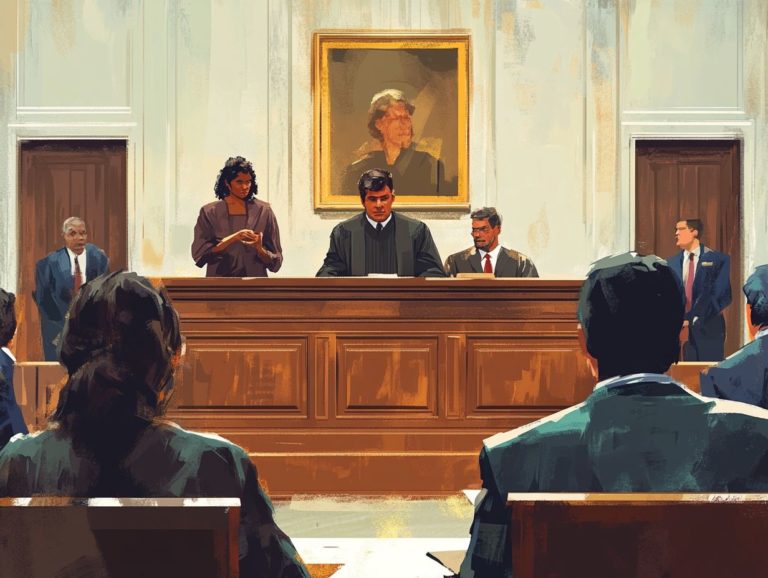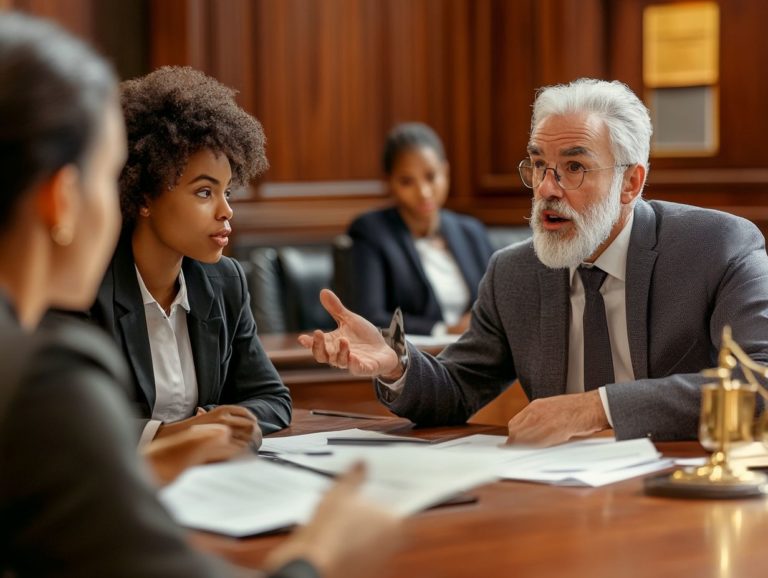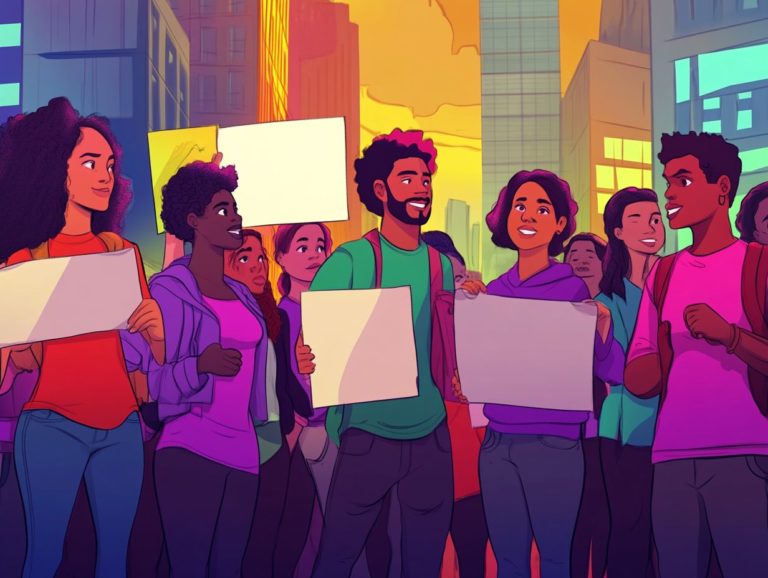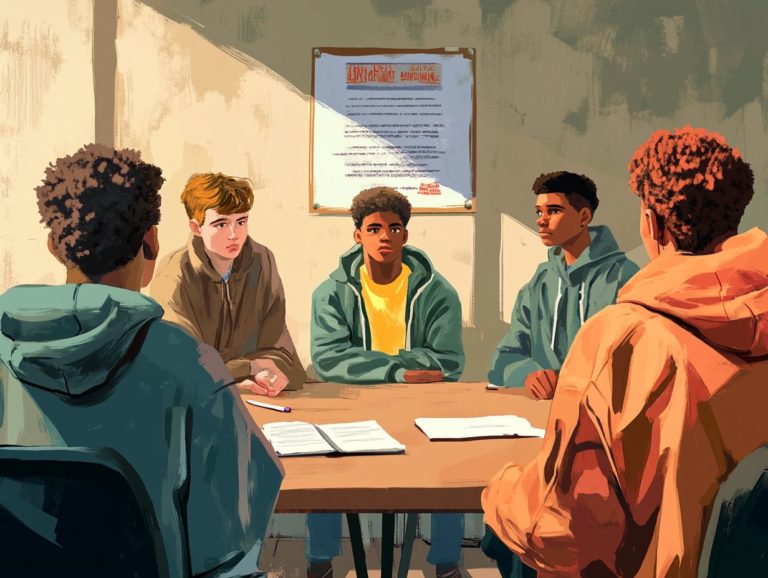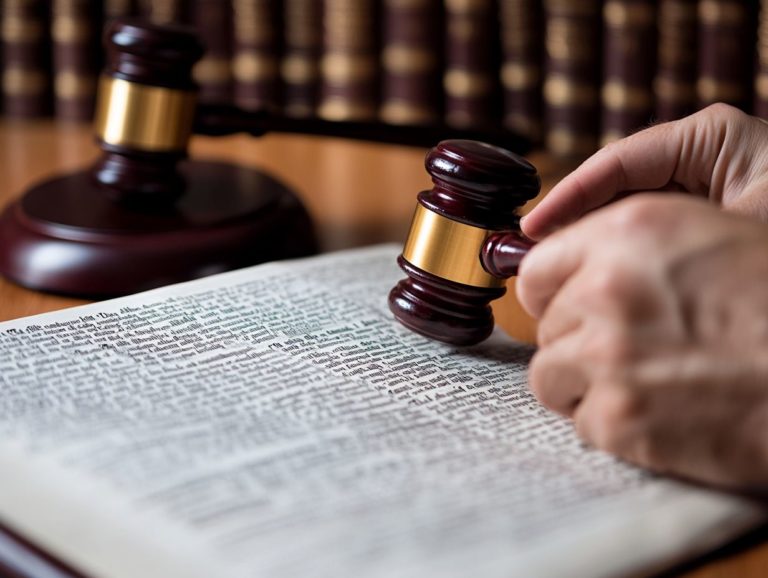5 Essential Things to Know About Your Rights
Understanding your rights is essential as you navigate the complexities of life, whether in the workplace, healthcare, or beyond.
This guide clearly explains the fundamental rights you possess as a citizen, employee, consumer, and individual within the criminal justice system. It delves into how these rights are safeguarded, their limitations, and why being informed about them is vital in everyday scenarios.
Whether you re advocating for yourself or others, this knowledge will empower you to assert your rights with confidence.
Engage with this information to fortify your understanding and ensure that your voice resonates.
Contents
Key Takeaways:
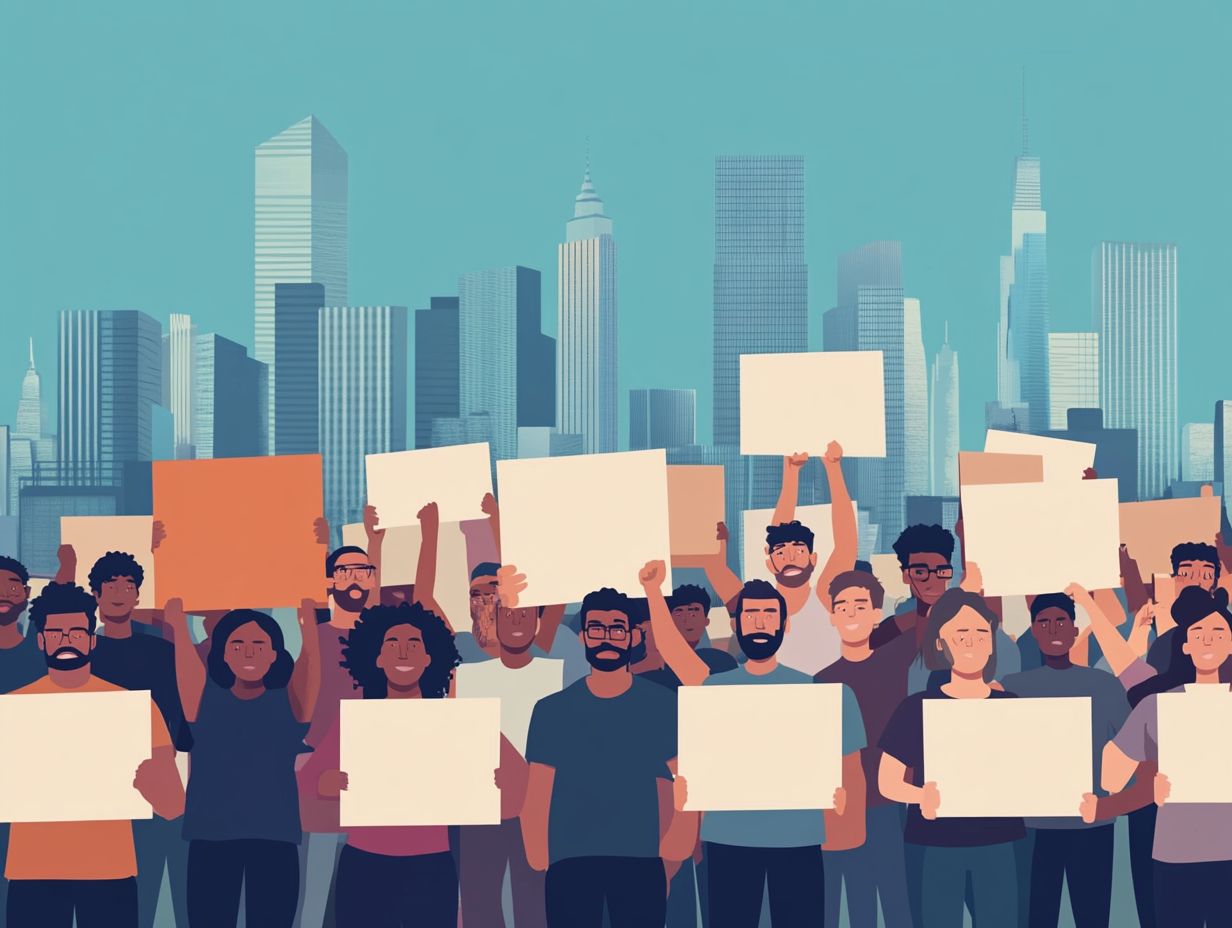
Know your rights as a citizen to ensure fair and equal treatment under the law.
Familiarize yourself with your rights in the workplace to protect yourself from discrimination and exploitation.
As a consumer, be aware of your rights to avoid fraud and ensure quality products and services.
1. Your Rights as a Citizen
As a citizen, your rights are firmly established in the U.S. Constitution. This creates a strong foundation for civil rights that protects your freedoms and responsibilities across various facets of life. This includes your voting rights, freedom of speech, and safeguards against discrimination based on race, ethnicity, or immigration status. Specific provisions exist for DACA (Deferred Action for Childhood Arrivals) recipients, protecting eligible young immigrants from deportation.
The First Amendment stands out prominently, ensuring essential freedoms such as speech, press, religion, and assembly. This guarantees that you can express your beliefs without the looming threat of government interference.
The Bill of Rights serves as a critical pillar in enhancing community rights and responsibilities, establishing legal protections for marginalized groups. Take, for instance, the Fourteenth Amendment s Equal Protection Clause, which reinforces the idea that every citizen deserves equal treatment under the law. It plays a key role in combating systemic inequalities.
These constitutional guarantees are vital in cultivating an inclusive environment. They encourage dialogue and activism for those whose voices have historically been stifled.
2. Your Rights in the Workplace
Your rights protect you from discrimination in the workplace. This ensures you receive fair treatment regardless of your sex, race, ethnicity, or sexual orientation especially for those in the LGBTQ community.
Federal laws bolster these protections, such as Title VII of the Civil Rights Act, which explicitly prohibits discrimination based on race, color, religion, sex, or national origin. The Equal Employment Opportunity Commission (EEOC) is instrumental in enforcing these laws, offering legal assistance and guidance for those who encounter violations of their rights.
Creating a workplace culture that values diversity and promotes inclusion is crucial. When you stand up for your rights, you not only safeguard your own well-being but also contribute to a nurturing environment for everyone around you.
Explore the resources available and understand your rights. Doing so gives you the power to tackle issues of harassment and discrimination with confidence.
3. Your Rights as a Consumer
As a consumer, your rights encompass protection against unfair trade practices and discrimination. This ensures that you, like everyone else, have access to goods and services without bias or exclusion.
This essential framework goes beyond daily transactions; it plays a vital role in shielding you from fraud and other unethical business practices that may target vulnerable populations.
When you understand your rights, you gain the confidence to confront inequitable treatment not just in the marketplace but also in broader societal matters, such as voting accessibility.
By advocating for equitable policies in these areas, you help ensure that every citizen can make informed choices free from manipulation or unjust barriers.
Supporting initiatives that uphold these protections fosters a fair marketplace and strengthens a more democratic society.
Don t wait know your rights today!
Understanding and asserting your rights is crucial. It empowers you in personal and public spheres, ensuring that your voice is heard and respected.
4. Your Rights in the Criminal Justice System
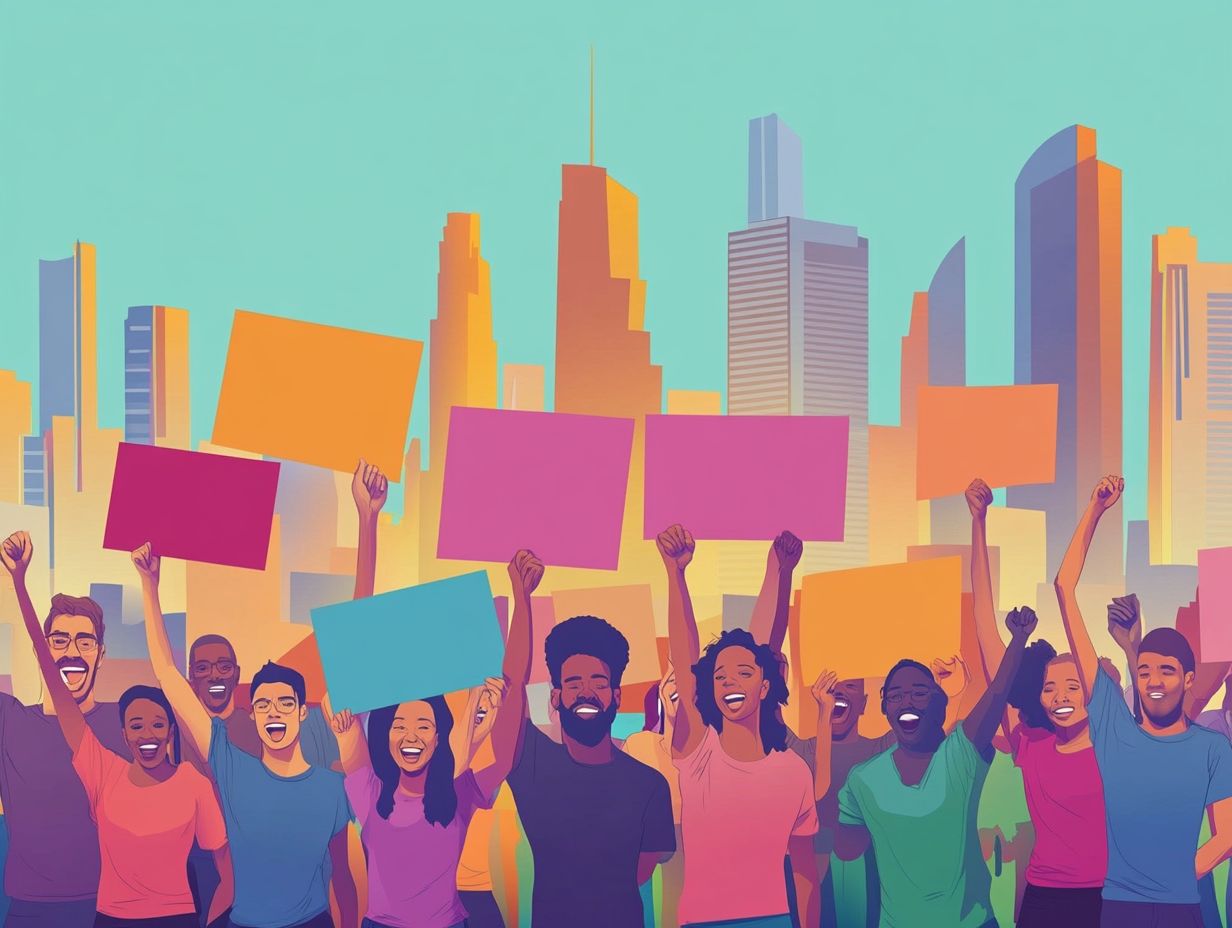
Your rights in the criminal justice system are crucial. They help ensure you are treated fairly.
Your Miranda Rights protect you when questioned by police. The Fourth Amendment protects you from unreasonable searches.
The exclusionary rule means evidence obtained illegally can t be used in court. This deters police misconduct.
Having a good lawyer is vital if you are in police custody. They help you understand your rights and ensure you get due process.
5. Your Rights in Healthcare
As a patient, you have the right to quality care without discrimination. It s crucial for healthcare providers to respect what makes you unique.
You should know your treatment options and be able to make decisions. Privacy for your personal information is essential.
Advocacy for fair healthcare practices is important, especially in communities facing barriers.
Advocacy groups fight for fair healthcare practices. They work to ensure everyone gets the support they need.
What Are the Different Types of Rights?
Rights serve different purposes. Civil rights protect your freedoms, while human rights ensure dignity for all.
Every right comes with responsibilities. Civil rights include free speech, assembly, and due process.
Human rights are for everyone, no matter where they live. Voting rights let you choose your leaders and influence laws.
These rights are closely tied to your responsibilities, like voting and advocating for others.
How Are Rights Protected and Enforced?
Rights are protected through federal laws and advocacy. This helps you seek justice if your rights are violated.
The Voting Rights Act removes barriers to voting. Other laws target job discrimination based on race, gender, or disability.
Advocacy organizations raise awareness about rights abuses. They support those impacted, helping you assert your rights effectively.
What Are the Limitations of Rights?
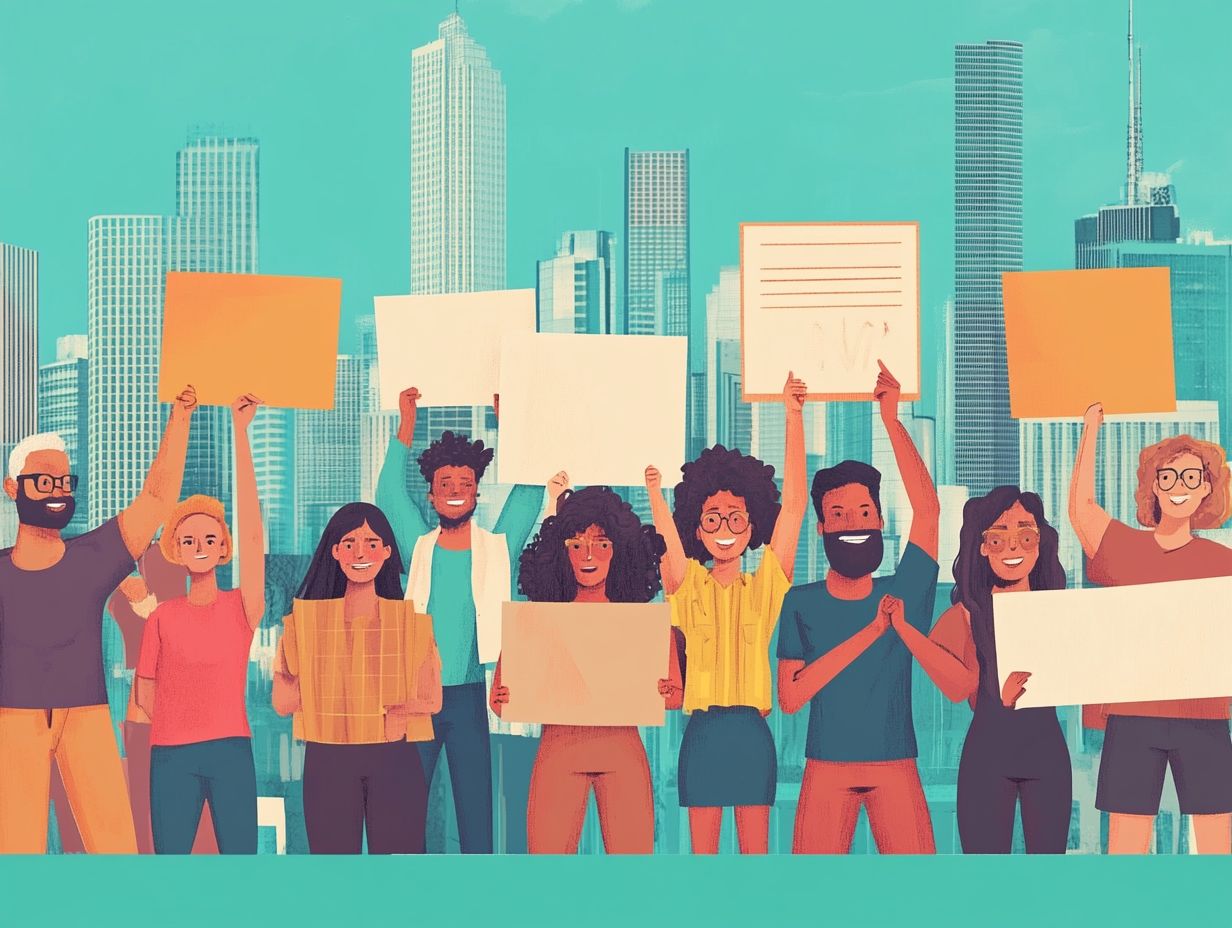
Your rights are fundamental, but they do come with limits necessary for public safety. These limits include reasonable suspicion and consent searches in law enforcement.
During police investigations, maintaining order can sometimes take priority over individual freedoms. If lawfully detained, police may stop and question you if they have reasonable grounds to suspect criminal activity.
This principle was confirmed in the landmark case Terry v. Ohio, which allowed stop-and-frisk procedures. It highlights the balance between law enforcement needs and your constitutional rights.
In exceptional situations, like national emergencies, certain rights may also be limited. This shows that while individual freedoms are vital, public safety sometimes requires tough compromises.
How Do Your Rights Interact with the Rights of Others?
Your rights connect with those of others in complex ways. The protection of community rights can sometimes lead to conflicts needing careful legal consideration.
This is especially true for marginalized groups, whose voices often struggle to be heard. For example, a local noise ordinance may unintentionally impact a cultural festival.
While the goal is community peace, such laws can overshadow the rights of festival-goers. This demonstrates the need to balance individual expressions with community norms.
It’s crucial to ensure that all community members’ rights are respected and upheld, fostering a more inclusive environment.
What Are the Consequences of Not Knowing Your Rights?
Not knowing your rights can lead to serious problems. You might face violations, lack legal help, or miss out on voting, all of which can affect your freedoms.
In the workplace, you could unknowingly accept unfair contracts or experience harassment without realizing your right to a safe environment.
If you’re unaware of your consumer rights, deceptive marketing could harm you financially. This could limit your options for recourse.
In legal situations, not knowing your rights can be even more dangerous. People often waive their right to legal representation simply because they don t know better, leading to poor outcomes in court.
Understanding your rights is not just beneficial; it s essential for preventing violations and promoting fairness in all areas of life!
How Can You Advocate for Your Rights?
To advocate for your rights, understand the legal framework and engage with public media. Use legal representation to ensure your voice is heard, especially regarding voting and civil rights.
Consider joining community organizations focused on advocacy. They provide valuable resources and support to help you navigate legal challenges.
Participating in local meetings or volunteering can amplify your influence. Don t underestimate social media it’s powerful for raising awareness on critical issues!
When facing legal complexities, seek guidance from qualified legal counsel. Attending workshops on advocacy skills can equip you to champion your rights and those of others.
Frequently Asked Questions
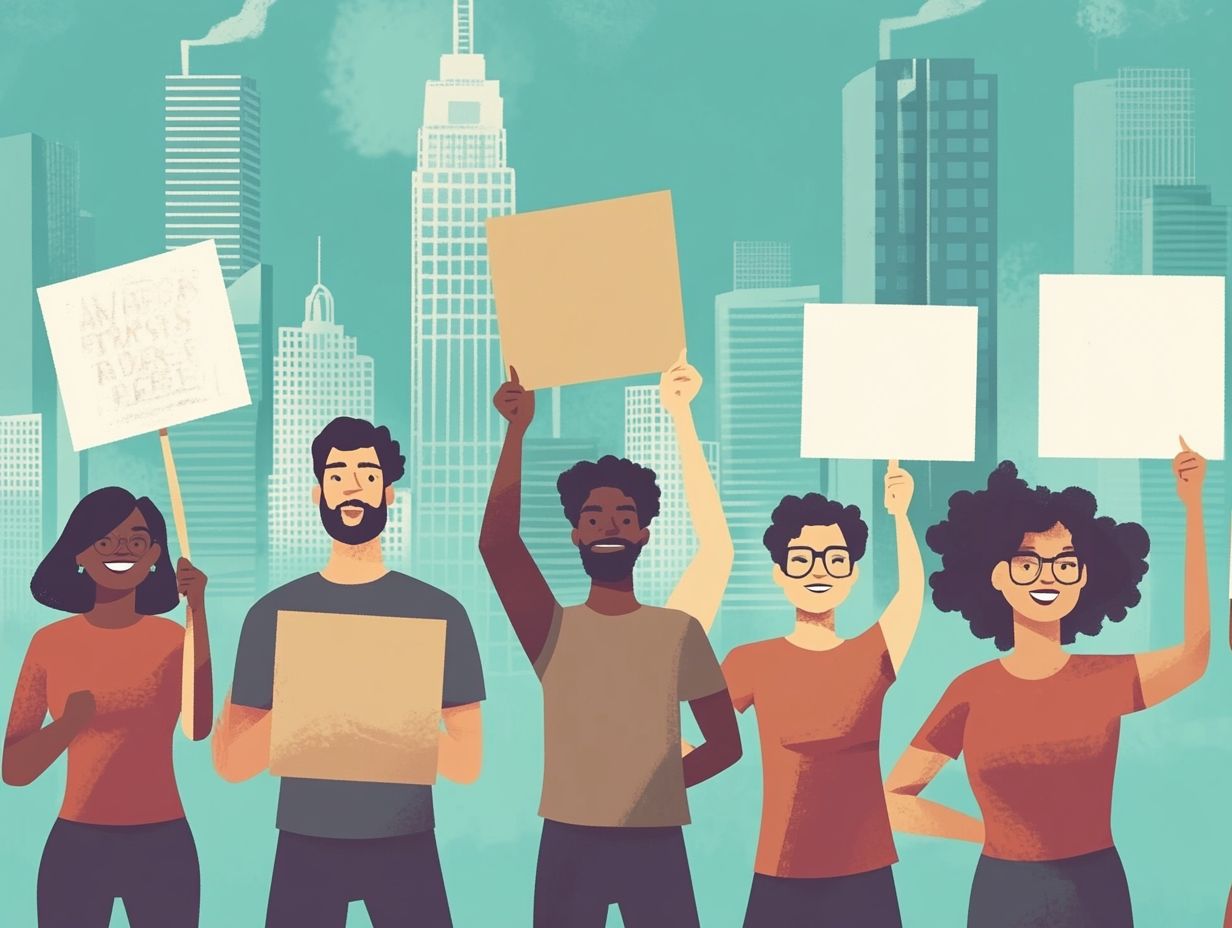
What are the 5 essential things to know about your rights?
Know your rights. Understand the laws, know who to contact, be aware of potential violations, and exercise your rights.
Why is it important to know your rights?
Knowing your rights helps you protect yourself. This knowledge stops you from being taken advantage of.
What laws should I be aware of?
Be aware of federal and state laws that protect your rights. These include laws against discrimination, harassment, privacy violations, and those that ensure freedom of speech.
Who should I contact if my rights are being violated?
First, try to resolve the issue directly with the individual or organization. If that doesn t work, contact a lawyer, government agency, or advocacy group for help.
What are some common ways in which rights are violated?
Rights can be violated through discrimination based on race, gender, or religion. Other violations include invasion of privacy, denial of access to education or healthcare, and limitations on freedom of speech.
How can I exercise my rights?
Be informed and speak up when your rights are at risk. Educate others about their rights and support those who cannot defend themselves.

